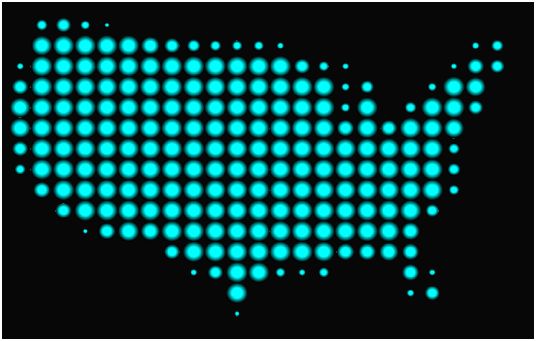There’s only one thing less effective than trying to make some news during CES while not at CES – Trying to make news by backtracking on news released during CES while not at CES (cough, Apple, cough). Whether or not there’s a cheaper version of the iPhone on the way is the least of anyone’s interest after the 2013 Consumer Electronics Show in Las Vegas. While we were surprised at how quiet mobile companies were during the event, that doesn’t mean there wasn’t plenty to talk about. Press conferences, press releases, devices on the show floor – a slow year for mobile still meant there was far too much to process over teh course of the week. This week, we’ll take a look at the winners and losers in mobile during CES while recapping the news from January 6-12, 2013.
T-Mobile: Winner
It’s no secret that in the contest between mobile providers, T-Mobile is playing with a chip on its shoulder. On stage at CES, the company did it’s best Kevin Garnett impression and trash talked even though it’s trailing on the scoreboard. CEO John Legere came out throwing haymakers in every direction. But then something crazy happened: He landed his punches. Sure, he was off the wall, but he was hilarious and offered customers something. T-Mobile is now offering unlimited monthly plans with no contract attached, is rolling out HD Voice for compatible handsets, expanding 4G coverage across the country, creating a partnership with Major League Baseball, and calling itself the “Uncarrier.” While I’m personally opposed to giving yourself a nickname, I was oddly ok with this. Maybe it was the cheap shot at Verizon’s “[covering] the dust bowl with LTE” made it all ok. Regardless, this guy needs to hold weekly fireside chats purely for our enjoyment. What a fascinating new CEO.
 Carriers Not Named T-Mobile: Losers
Carriers Not Named T-Mobile: Losers
Way to phone it in, guys – pun intended. We know next month will hold a little more importance for some of the big mobile players as Mobile World Congress will take place in Barcelona, but they could have at least broke us off with a little something. Sprint made the bold decision of finally committing the third biggest mobile OS in the world by announcing Windows 8 phones. AT&T brought out a bunch of its high profile partners and talked about how great all of its current relationships were going, but basically said nothing. Verizon said enough to fill a single page press release: the Ativ Odyssey and Galaxy Note 10.1 are coming to Verizon.
Big Screens: Winner
Bigger might not always be better, but it was sure viewed as a selling point during CES 2013. Smartphones are getting a step closer to being tablets and tablets are getting a step closer to being actual tables. Chinese phone maker Huawei showed off the Ascend Mate and it’s 6.1 inch screen now completely bridges the world of 5-inch phones and 7-inch tablets (Nexus 7). Vizio decided to make the standard screen size for tablets expand a bit, announcing a Windows 8 tablet with an 11.6 inch display. To push the boundaries for the definition of what’s considered a tablet, Panasonic pulled out all the stops and unveiled a 20-inch tablet running Windows 8. To complete the one-up contest, Lenovo rolled out a 27-inch tablet that really is just daring someone to top it. I’m not sure if every mobile developer is inviting Shaquille O’Neal into the design lab, but some of us have tiny hands, guys. Stop it.
The United States: Loser
CES 2013 was held in Las Vegas. Last time I checked, that was still in the United States. So why do you have to come and show off stuff that we can’t have? I’m looking at you Huawei. The company rolled out two great looking handsets with the Ascend D2 and Ascend Mate, its first Windows 8 phone, and the world’s smallest USB card but only announced their availability in China. Fellow Chinese phone maker ZTE brought over its Grand S and also never spoke of a release date outside of its home country. ZTE did make one notable overseas offering by promising to bring a phone running Firefox OS to – wait for it – Europe in 2013. Did no one inform these companies that we need phones in the U.S. too?
 New Operating Systems: Winner
New Operating Systems: Winner
While only two of the operating systems that intend to challenge the current champs were on hand at CES 2013, they both certainly made good impressions. Though it comes from a long line of mobile OSes, Blackberry 10 looks like it may actually be the thing that puts Research in Motion back in contention. With a promising showing and popular demo that impressed most who got their hands on it and a thorough launch with plenty of options available in 2013, Blackberry 10 may make those belt clip phone holders socially acceptable again. The total newcomer, Firefox, is breaking away from the standards of mobile operating systems and seems to be doing a pretty good job at it. Plans to have the OS installed on phones and available to the public this year are in place, so we won’t have to wait too long to see if it catches on.







